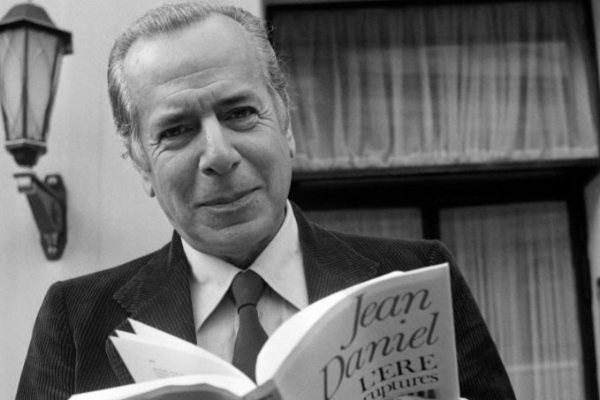- Journalism. Death Jean Daniel
- Jean Daniel, Prince of Asturias Award for Communication
- Profile: A respected "scribe of the ephemeral"
Jean-Daniel Bensaïd , that Sephardic boy born in Algeria, was propelled to Europe with World War II, and destiny placed him in the troops of General Leclerc , participants in the liberation of Paris. Interested in literature and leftist ideas, excited about Soviet communism at age 15 but soon disenchanted after reading André Gide's Retour d'URSS , even before he turned 20 and facing the German invasion of the The French metropolis was already identified with a moderate social democracy, far from the Communist Party and near León Blum .
Continuing his studies at the Sorbonne from 1945, he spent several months as an advisor - and speech editor - for the provisional president of the Republic, Felix Gouin . The trapicheos and the servilismo disgust him soon, and definitely, of the policy. At that time he owes his signature of Jean Daniel, who served him for his first newspaper articles, and in 1947, under the protection of Albert Camus , he founded and directed the magazine Caliban , left-wing but very open.
Europeanist from the beginning, Daniel had to return to Oran in 1952 when closing the magazine, after finding a job as a teacher, and there he writes his first novel, The error , edited by his friend Camus. But he returns soon to Paris, and begins to write for L'Express by Jean-Jacques Servan-Schreiber , covering among other events the war in Algeria.
That tense era forever defines Daniel: a supporter of Algerian independence, which cools his relationship with Camus, Daniel refuses to sign the pro-independence manifesto of French intellectuals, because he does not guarantee the future or the security of the French settlers of Algeria. Once again, and he will demonstrate it from 1964 with his magazine Le Nouvel Observateur - left-wing competitor of L'Express -, Daniel faces the extremes and proposes progressive but moderate solutions. It is an example of that social-democratic and non-sectarian intellectuality of Europe in the mid-twentieth century, of which we hardly find traces today.
In 2004 he received the Prince of Asturias Award for Communication and Humanities . Director of what is now called l'Obs until age 87, in 2008, he continued writing columns for her, and his literary activity never stopped, publishing until 2016 dozens of novels, essays and biographies, culminated by his Mitterrand l ' Insaisissable .
According to the criteria of The Trust Project
Know more- media
The final interview Lucia Asué Mbomío: "Of course we Spaniards are racist, just as we are macho"
CulturaMuere with 105 years Roser Rahola, founder of the Vicens Vives publishing house
Literature Guillermo Arriaga, Alfaguara novel prize with a history of violence and love in present-day Mexico

